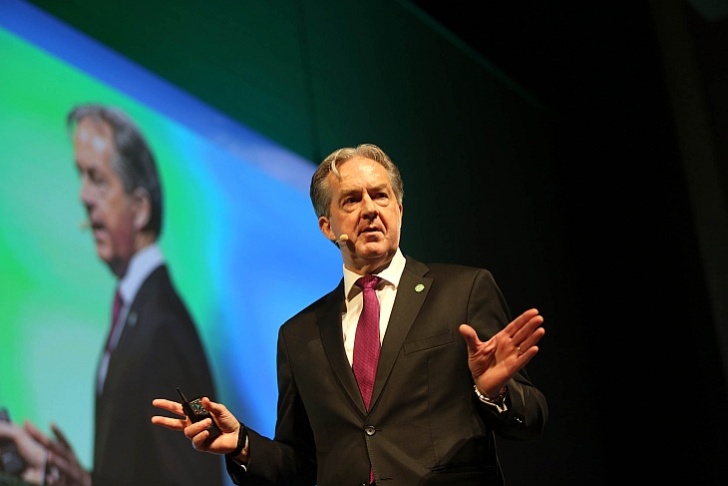Ireland’s Food Industry Sets 800 Sustainability Targets
 Ireland’s beef industry could become most carbon efficient in Europe, generating additional €300 million on-farm income per year
Ireland’s beef industry could become most carbon efficient in Europe, generating additional €300 million on-farm income per year
A new report launched today by the Irish Food Board (Bord Bia), sets out the Irish food and farming industry’s ambition to be a world leader in sustainable food and drink production.
The report, launched on the opening day of Bord Bia’s Global Sustainability Forum in Dublin, Ireland, is a comprehensive summary of the first three years of the Irish Food Board’s groundbreaking Origin Green programme. Launched in June 2012, Origin Green is the world’s first sustainability programme for a country’s entire food and drink sector.
As part of the programme, food and drink manufacturers have commited to over 800 sustainability targets around raw material sourcing, manufacturing processes and social sustainability. The targets provide for reductions of €12 million and €17 million in energy and water usage respectively by 2017, and seek to reduce general waste generation by 14,000 tonnes. According to the Irish Food Board, Origin Green has met with universal acclaim from the World Bank, the World Wildlife Fund, and from global leaders in the food and drink industry.

Aidan Cotter, Chief Executive, Irish Food Board
“No other country anywhere is carbon foot-printing its farms on, what is, in effect, a national scale,” said Irish Food Board Chief Executive, Aidan Cotter. “Greater levels of demand from a growing population represent a significant opportunity for Irish food and drink producers. However, we must remain cognisant of our responsibility to expand in a manner which will not lead to the long-term degradation of our natural resources.”
A unique feature of Origin Green is the practice that all participating farms be audited and carbon-footprinted once every 18 months. Since its launch, almost 90,000 carbon assessments have been carried out on Irish farms. The Irish Food Board report indicates total greenhouse gas emissions from agriculture could be reduced by 6%, or by 1 million tonnes if the lower-performing beef and dairy farms were brought back in line with the national average. Ireland’s dairy herd already enjoys the joint-lowest footprint in the European Union, while its beef herd ranks at number five.
The report goes on to state that were the carbon footprint of the beef herd to be reduced by 10% – by achieving a range of specified performance measures – it could become the most carbon efficient in Europe and generate improved on-farm income of €300 million per year.
Under Origin Green, food and drink companies are required to create three to five year sustainability development plans in which targets are set in areas such as raw material sourcing, energy usage and emissions, water and waste management and social sustainability such as producing healthier foods and investing in their communities.
The Irish Food Board’s focus will now turn to how Origin Green can help lower the industry’s environmental footprint, with a major focus on emissions, biodiversity and water quality, while enhancing its impact on society by prioritising health and wellbeing. Bord Bia will also soon look to extend the programme to retail and foodservice to complete the food supply chain, and ultimately reach out to consumers.
Padraig Brennan, Sustainability Development Manager, Bord Bia, will present a case study on Origin Green as one of the guest speakers at the seminar ‘Building a sustainable and integrated food chain: tackling food waste’ on November 18th at Food Matters Live, ExCeL, London.
Read the full report at http://www.origingreen.ie/sustainability-report-2015/



